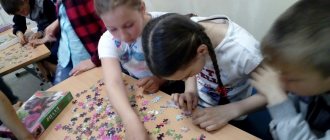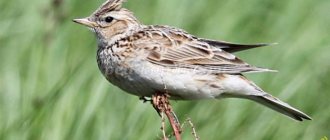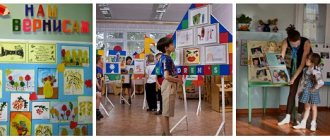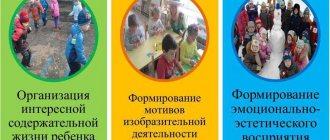Patriotic education is an integral part of the social and moral education of the younger generation and the formation of a harmoniously developed personality. That is why the new educational system in the Russian Federation is focused on raising a worthy citizen and patriot from an early age.
Classes on patriotic themes are compulsory in both private and public preschool institutions. We will talk about the main goals and objectives of the moral and patriotic education of preschool children in the article.
The main goal of patriotic education of children in preschool educational institutions
The main goal of moral and patriotic education in children's educational institutions of all types is the formation and development of patriotic feelings in children: love for their country, native land, their natural resources, culture, history, moral values, national and family traditions, people. In the process of growing up and accumulating knowledge about the Motherland, the life of society, nature and the work of people, these feelings are formed in growing children step by step.
Abstract “Moral and Patriotic Education of Preschool Children”
“Moral and patriotic education of preschool children”
Preschool age, as the age of formation of the foundations of personality, has its potential for the formation of higher social feelings, which include the feeling of patriotism.
The task of teachers and parents is to awaken in a growing person a love for his native land as early as possible, and from the first steps to form in children character traits that will help him become a person and a citizen of society.
Moral and patriotic education of children is one of the main tasks of preschoolers. Our preschool institution has developed a system of work in this direction. The teaching staff sets itself the following tasks:
These tasks are solved comprehensively in all types of activities: in classes, in games, in everyday life, through holidays, excursions, conversations, club work, joint activities, work with parents, since they raise a patriot in a child his whole life: in kindergarten and at home , his relationships with adults and peers. The system and sequence of work on the moral and patriotic education of children can be presented as follows: Of course, this diagram cannot convey the fullness of the work on this issue. All these tasks are present, as it were, within the work of moral and patriotic education. The teacher’s task is to select from the mass of impressions received by the child those that are most accessible to him: nature and the world of animals at home (kindergarten, native land); people's work, traditions, social events, etc. Moreover, the episodes to which children’s attention is drawn should be bright, imaginative, specific, and arousing interest. Therefore, when starting work on instilling love for the native land, the teacher must know it well himself. He must think over what is most appropriate to show and tell the children, especially highlighting what is most characteristic of a given area or region. Any region, region, even a small village cannot be repeated. Each place has its own nature, its own traditions and its own way of life. The selection of appropriate material allows preschoolers to form an idea of what their native land is famous for. Hometown... We must show the child that his hometown is famous for its history, traditions, sights, monuments, and best people. What information and concepts about their hometown can children learn? A four-year-old child should know the name of his street and the one on which the kindergarten is located. The attention of older children needs to be drawn to objects that are located on the nearest streets: school, cinema, post office, pharmacy, etc., talk about their purpose, and emphasize that all this was created for the convenience of people. The range of objects that older preschoolers are introduced to is expanding - this is the region and the city as a whole, its attractions, historical places and monuments. The children are explained in whose honor they were erected. An older preschooler should know the name of his city, his street, the streets adjacent to it, and also in honor of whom they are named. They explain to him that every person has a home and a city where he was born and lives. This requires excursions around the city, into nature, observation of the work of adults, where each child begins to realize that work unites people, requires them to be coherent, mutual assistance, and knowledge of their business. And here, acquaintance of children with the folk crafts of the region and folk craftsmen becomes of great importance. In moral and patriotic education, the example of adults, especially close people, is of great importance. Based on specific facts from the lives of older family members (grandparents, participants in the Great Patriotic War, their front-line and labor exploits), it is necessary to instill in children such important concepts as “duty to the Motherland,” “love for the Fatherland,” “feat of labor.” A continuation of this work is to introduce children to other cities of Russia, to the capital of our Motherland, to the anthem, flag and emblem of the state. For example, when raising children’s love for their city, it is necessary to bring them to the understanding that their city is a part of the Motherland, since in all places, large and small, there is much in common: everywhere people work for everyone (teachers teach children; doctors treat the sick; workers make cars, etc.); Traditions are observed everywhere: the Motherland remembers the heroes who protected it from enemies; People of different nationalities live everywhere, work together and help each other; people take care of and protect nature; there are general professional and public holidays, etc. To be a citizen, a patriot, is certainly to be an internationalist. Therefore, nurturing love for one’s Fatherland and pride in one’s country should be combined with the formation of a friendly attitude towards the culture of other peoples, towards each person individually, regardless of skin color and religion. Of course, a humane attitude towards people of different nationalities is created in a child primarily under the influence of parents and teachers, i.e. adults who are near him. This is especially true these days, when confrontations over these issues arise among some of the adult population. Therefore, it is especially important in kindergarten to support and direct the child’s interest in people of other nationalities, to tell where a given people live geographically, about the uniqueness of nature and climatic conditions on which his life and the nature of his work depend. By the end of the preschool period, the child should know: our country is inhabited by people of different nationalities; each people has its own language, customs and traditions, art and architecture; Every nation is talented and rich in craftsmen, musicians, and artists. Thus, when solving the problems of moral and patriotic education, each teacher must build his work in accordance with local conditions and the characteristics of children, taking into account the following principles: “positive My family”, “My street”, “My kindergarten”. Work on each topic should include classes, games, excursions, unregulated activities of children, and on some topics - holidays. Thematic planning contributes to the effective and systematic acquisition by children of knowledge about their country, native land, and the area where they live. Moreover, the topics are repeated in each group. Only the content, volume of cognitive material and complexity change, and therefore the duration of the study. The main form of moral and patriotic education of children is thematic classes. It is important that they increase children's mental activity. This is helped by comparison techniques (work on the collective farm before and now, abacus and computers, etc.), questions, and individual assignments. It is necessary to teach children to independently analyze what they see, make generalizations and conclusions. You can suggest finding the answer in the illustrations, asking your parents. It should be emphasized that a preschool child is characterized by short-term interests, unstable attention, and fatigue. Therefore, repeated reference to the same topic only contributes to the development of children's attention and long-term preservation of interest in one topic. Taking into account the age characteristics of children requires the widespread use of gaming techniques, which are important both for increasing the cognitive activity of children and for creating an emotional atmosphere of the lesson. Each topic should be supported by various games and productive activities (making collages, crafts, albums, thematic drawing). The results of work on a topic that unites children’s knowledge can be presented during general holidays and family entertainment. It should be emphasized that difficulties in familiarizing children with everyday life, traditions, and individual historical moments are caused by the fact that preschoolers are characterized by visual-figurative thinking. Therefore, it is necessary to use not only fiction and illustrations, but also “living” visual objects and materials (national costumes, antique furniture, dishes, tools, etc.). “Everyday Everyday Life” is extremely effective for introducing children to fairy tales, folk crafts, and antique household items. For this, it is advisable to visit museums, as well as organize special rooms in kindergarten. It is here that the child has the opportunity to gain his first insight into the history of life in his native land. An equally important condition for the moral and patriotic education of children is a close relationship with their parents. Touching the history of your family evokes strong emotions in a child, makes you empathize, and attentively pay attention to the memory of the past, to your historical roots. Interaction with parents on this issue promotes respect for traditions and the preservation of vertical family ties. Currently, this work is relevant and especially difficult, requiring great tact and patience, since in young families the issues of instilling patriotism and citizenship are not considered important, and often only cause bewilderment. Involving the family in raising children requires special tact, attention and sensitivity from the teacher to each child. In this regard, it may be necessary to involve someone in searching for documents about family members. The voluntary participation of everyone is a mandatory requirement and condition of this work. Everyone’s roots are in the history and traditions of the family, their people, the past of the region and the country; family is the unit of society, the keeper of national traditions; the happiness of the family is the happiness and well-being of the people, society, and state.
Children is our future. It is important to teach them in a timely manner to love and cherish everything that was created by the older generation: freedom, peace, the Fatherland. Raising children in modern conditions increasingly requires turning to the experience accumulated by previous generations. “Only those who love, appreciate and respect what has been accumulated and preserved by the previous generation can love the Motherland, get to know it, and become a true patriot”
Literature.
Babayan A.V. On morality and moral education / Pedagogy. 2005. No. 2.
Education of moral feelings in older preschoolers / Ed. A.M. Vinogradova. - M., 1991.
Vetokhina A.Ya. Moral and patriotic education of preschool children.-SPB: Detstvo-Press, 2013.
Danilina G.N. For preschoolers - about the history and culture of Russia. –M.: Arkti, 2003.
Dozorova M.A. “Family” - M.: Arkti, 2008.
Kondrykinskaya L.A. Where does the Motherland begin? - M.: Sfera, 2004.
Makhaneva M.D. Moral and patriotic education of preschool children. - M.: Sfera, 2009.
Ostrovskaya L.F. Conversations with parents about the moral education of preschoolers. - M., 1987.
Usacheva T.V. Patriotic education program for preschoolers
The tasks of patriotic education of children in preschool educational institutions
The tasks of patriotic education in preschool educational institutions are quite multifaceted. They expand and become more complex as preschoolers grow up, their thinking develops, as well as the gradual formation of the correct attitude towards the surrounding reality, relatives and strangers, and moral feelings.
Objectives of moral and patriotic education in kindergarten:
- To instill in children a love for the Motherland - their native country, its historical milestones, cultural values and traditions.
- To form an idea of the main symbols of Russia: the State Emblem, the State Anthem, the State Flag; teach to understand the meaning of the main elements of state symbols.
- Gradually expand the knowledge of preschoolers about Moscow - the main city of the Russian Federation, about the main attractions and memorable places of the capital.
- Enrich knowledge about the small homeland - the native land: about the origin and meaning of the name of the native city / village / town, about its beautiful corners and attractions, about places of military glory, about nature and people.
- Instill socially useful work skills; to form an idea of work as an important spiritual value for every person; Encourage children's desire to be useful and help other people.
- Cultivate respect for parents and other relatives, awaken interest in family traditions and moral values, family history.
- To introduce the peculiarities of national culture and traditions based on works of fiction and art, folklore, and the work of folk craftsmen.
- To form in preschoolers an understanding of the main national holidays.
- Talk about the Russian army, about the soldiers guarding the Motherland, about military professions (pilots, border guards, tank crews, sailors), about military equipment.
- To cultivate respect for the defenders of the Fatherland, for the memory of the soldiers who died for the Motherland.
- Develop civic-patriotic feelings, interest in events taking place in the country, and historically significant dates.
- To form in pupils a sense of pride for the successes of their Fatherland, for its power, natural resources; to form an understanding of the importance of work for the benefit of the Motherland.
- Instill respect for the people who glorified Russia: military heroes, cosmonauts, scientists, writers, artists.
- International education. Formation in preschoolers of interest and friendliness towards people living in other countries.
The tasks of patriotic education in kindergarten are solved comprehensively, taking into account the age characteristics of preschoolers, in a fun way that awakens interest and curiosity. The methods of moral and patriotic education in preschool educational institutions are diverse: verbal, playful, practical, visual.
Means of developing patriotic feelings in children are fiction, music, visual arts, excursions around their hometown/town/village, exciting games, creativity, feasible joint work, preparation for the holidays.
Lesson summary on patriotic education
PLAN-OUTLINE
to conduct classes with students on patriotic education
LESSON TOPIC:
“Patriotism and loyalty to military duty.”
Learning objectives:
training
– formation of a system of knowledge, abilities and skills, as well as new concepts at a certain stage of the topic being studied;
education
– formation of interests in the content of the lesson and the necessary qualities;
development
– developing skills in problem-based learning, as well as seeing a problem in the learning system;
Lesson type
: lesson - learning new material.
Lesson type
: lesson - a story with elements of conversation.
Teaching methods
: dialogical presentation.
Teaching Method
: informative, stimulating.
Teaching method
: reproductive.
Education method
: expressive presentation, direct impact.
Material support
: computer, multi-media equipment.
Progress of the lesson
Today our Motherland is going through one of the most difficult periods of its centuries-old history. The process of reforming society is not easy. Unfortunately, it is accompanied by an economic and social crisis. The military reform that has begun is being carried out in the context of negative processes in the spiritual sphere of society (lack of faith, loss of ideological and moral guidelines), limited material and financial capabilities of the state.
In these conditions, every citizen, every conscript entering the army and navy, especially needs to preserve and strengthen the feeling of love for their Fatherland, national pride and self-awareness.
WHERE DOES THE MOTHERLAND START?
At all times, poets have composed the best poems and songs about the Motherland. Writers and artists dedicated their works to their native land. Workers and peasants, doctors and teachers consecrate glorious deeds in her name... With the name of the Fatherland in their hearts and on their lips, its best citizens went into battle with enemies and performed unparalleled heroic deeds. And if necessary, for their beloved Motherland, for its honor and independence, they gave the most precious thing a person has - life.
Guys, yes
What is the Motherland, Fatherland?
What meaning do we put into these concepts? Marina, Almaz
Motherland is
the historically developed socio-economic, political and cultural environment in which a person was born, with which the history of his people is connected. Fatherland is a synonym for the concept “Motherland”.
Anton Nikolaevich Tolstoy wrote: “What is the Motherland? This is the entire people making their historical movement in this square. This is the past of the people, its present and future. This is his unique culture, his language, his character. This is the goal of the revolutions he makes, the historical leaps, the nodes of his history.”
The concept of “Motherland” includes the conditions of the material and spiritual life of people: a territory that has certain boundaries and geographical features, the people inhabiting it, the socio-economic and political system, culture, way of life, language, folk customs and traditions.
The organic connection of a person with the Motherland presupposes a conscious and emotional attitude towards it. Thus, animals also have attachment to the familiar. But a person is aware of his attachment, his feelings for the Motherland. He perceives it not only with his heart, but also with his mind. He is proud of his Fatherland.
Guys, look at the picture and please answer what you see here...
Conventionally, a distinction is made between a large and a small Motherland. Big Motherland
is the country where a person was born, raised, and lives.
It includes the small Motherland. Small Motherland
is a place (village, city) of the formation of a person as an individual. This is a place that remains forever in our soul and where we will return throughout our lives, at least in memories.
Awareness of one’s Motherland and a feeling of love for it do not arise immediately. And everyone has their own way. One thing is certain - with the first sip of mother's milk, this feeling that unites us begins to arise. In the beginning, just as a plant reaches out to the sun, a child reaches out to its father and mother. Growing up, he begins to feel attached to friends, to his native street, village, city. And only as he grows up, gaining experience and knowledge, does he gradually realize that he belongs to his mother-Fatherland and is responsible for it. This is how a citizen is born, this is how a patriot is formed.
Guys, tell me what patriotism is
Patriotism (from the Greek ra tris
- homeland, fatherland) is love for one’s homeland, people, its history, language, national culture.
Every conscript must deeply understand that patriotism means not only and not just love for the Motherland, but devotion to it, pride in it, the desire to serve its interests, and protect it from enemies. This
—
purposeful activities for its progressive development and prosperity.
Patriotism is both natural excitement, worry about successes and sorrows
Fatherland, its victories and defeats.
It should be emphasized that love for the Motherland and service to it can manifest itself in different ways. Thus, the patriotism of a scientist will be different from that of a peasant, worker, artist or military man. Having a single Motherland, they will all love it, but each will express it in their own way.
Guys, tell me what military duty means
In a serviceman, patriotism is manifested in loyalty to military duty, selfless service to the Motherland, courage and heroism, and readiness to sacrifice one’s life. For military people, the concepts of “patriotism” and “military duty”, “feat” are inextricably interconnected, in fact, they are synonymous.
.
A true patriot loves his Fatherland not because it gives him some benefits and privileges over other nations, but because it is his
Homeland.
And therefore he is faithful to her in the most difficult moments.
A notebook found in the Nazi concentration camp of Sachsenhausen contained the following lines:
Well, I’m also entangled in mortal anxiety,
Without dreaming of a better fate,
I am until the very last minute
I will be faithful, Fatherland, to you.
Only an ardently loving and courageous man could think so in hell behind barbed wire. We will never know who wrote these lines. But thanks to precisely such people, patriots in the highest sense of the word, we won and will continue to win.
A person is either a patriot of his Fatherland, and then he is connected to it, like a tree with its roots to the earth, or he is just dust carried by all the winds. You cannot be born a patriot.
Patriotism cannot be gained by changing your place of residence.
You have to become a patriot, like a real person. You need to grow to this level !
THE UNSHAKEABLE RULE OF THE SOLDIER (SAILOR)
No matter what republic, region, region the young man is called from, he is responsible for the reliable defense of our common land, people, culture, relatives, loved ones, loved ones, that is, for our Fatherland. And the security of the Fatherland largely depends on the depth and strength of the patriotic feelings of its defenders.
It is no coincidence that the legendary A.A. Brusilov argued: “The first measure to increase the combat effectiveness of the army should be to incite popular patriotism in it.”
True patriotism is manifested not in words, but in deeds and above all
—
in fidelity to one’s constitutional, military duty.
What does the concept of “military duty” mean? What is it based on? How and in what ways does it manifest itself during military service? Understanding these issues by each conscript is extremely important and necessary.
In everyday life we often talk about the demands of duty, the sense of duty, the fulfillment of duty. A person lives in society and cannot be independent of it. In order to satisfy his daily needs, he uses the benefits created before him by older generations, parents, and society. In return, society (as in all previous times) makes certain demands on a person. Among other things, it obliges him to act, live and act in accordance with established, time-tested norms and rules. Society elevates some of them to the rank of laws by force of state power.
Others remain in the memory of the people, are passed on from generation to generation, and, although they are not dressed in the form of state legal documents, they are no less significant.
These are the so-called norms of morality and ethics.
Legal and moral norms are closely interconnected.
To summarize what has been said, we note that debt is
it is a concentrated expression of a person's specific duties. A person has responsibilities to his family (family duty), team and comrades (comradely duty), etc. The highest expression of duty is civil, patriotic duty to the Fatherland.
Each person's awareness of public responsibilities as their own, their clear implementation is the fulfillment of a public duty.
Without this, the full life of any organization, team, family, or even each individual person is impossible.
Military duty
is
a moral and legal standard of conduct for a military personnel.
It is determined by the requirements of society, the state and the purpose of the Armed Forces.
Today, when our country is experiencing a crisis in both the spiritual and moral spheres, not everyone correctly understands their duty. In pursuit of profit and pleasure, some citizens think only about themselves. They understand human decency and duty in a unique way - from the point of view of the priority of their egoistic ideas. This leads to an increase in crime in our society and moral distortions in the public consciousness. Some citizens choose only money and personal well-being as their main goals in life. Some of them do everything to evade their military duty. This is detrimental to the country and to these young people.
Guys,
It is important for every serviceman to understand that
military duty
is not a wish, but
an indispensable requirement of Russian society.
Service in the army and navy does not know the reservations: “I don’t want”, *I don’t want”, “I won’t”. One’s “I want” or “I don’t want” must be subordinated to the public “need”, “must”. Only those who are able to overcome themselves, their selfishness and weakness, can be considered a real man, a warrior.
Military duty, in comparison with other types of public duty, includes additional moral duties inherent in the purpose of the Armed Forces. Fulfilling military duty is not easy. However, it must be carried out in good faith, despite the difficulties encountered.
Guys,
Three times Hero of the Soviet Union, ace pilot A.I. Pokryshkin, humanly simply and clearly expressed his attitude towards fulfilling his duty: “The most important, most sacred thing for me has always been the duty to the Motherland. I did not stop in the face of difficulties if they stood in my way. He did not cheat either in front of his conscience or in front of his comrades. In battle, I tried to complete the assigned task as best as possible, ... to inflict as much damage on the enemy as possible.”
Anyone who knows these requirements and follows them every day, hourly in his deeds and actions, shows loyalty to military duty. It can't be any other way.|
Guys, what connects these people on the screen?
These words should serve as a guide for every conscript, every warrior.
From time immemorial, a person is judged not by what he says about himself, but by his deeds. The power of duty is manifested in practical action. The quality of practical performance of duty is one of the moral characteristics of an individual. It is not without reason that a warrior who skillfully directs his knowledge, thoughts, feelings and will to fulfill an order, a combat mission, or the requirements of military regulations is said to be a conscientious and morally mature military man.
Guys,
What does it mean for a Russian soldier in modern conditions to be faithful to military duty?
Your opinions.. ..
The answer to this question is very clearly given in the Federal Law
“On the status of military personnel” (1998).
The protection of state sovereignty and territorial integrity of the Russian Federation, ensuring the security of the state, repelling an armed attack, as well as performing tasks in accordance with the international obligations of the Russian Federation, the law notes, constitute the essence of military duty,
which obliges military personnel:
- to be faithful to the military oath, selflessly serve your people, courageously and skillfully defend your Fatherland;
- strictly observe the Constitution of the Russian Federation and the laws of the Russian Federation, the requirements of general military regulations, unquestioningly carry out the orders of commanders;
—- value the honor and military glory of the defenders of your people, the honor of military rank and military camaraderie;
- improve military skills, maintain weapons and military equipment in constant readiness for use, take care of military property;
- be disciplined, vigilant, keep state and military secrets;
— comply with generally recognized principles and norms of international law and international treaties of the Russian Federation.
* * *
A true citizen, a patriotic warrior always remembers his duty to the Fatherland and checks his life path against it, like a compass. The song is heard in the famous TV movie “Seventeen Moments of Spring”
( the song sounds)
based on the poems of Robert Rozhdestvensky “Moments”. There are wonderful, very precise words: “But in general, you just need to remember your duty, from the first moment to the last.” This is the main thing.
______________________ A.P. Ashirov
Patriotic corner in kindergarten, brief description
A good help for the comprehensive implementation of the tasks of moral and patriotic education in kindergarten is a colorful, informative, patriotic corner in the group that attracts the attention of children. It can be designed, and then updated and supplemented with new materials together with preschoolers and their parents. According to the Federal State Educational Standard, the patriotic corner in a preschool institution should include six sections.
The main thematic blocks of the patriotic corner in kindergarten:
- “State” is the central block of the patriotic corner. Here in a prominent place are placed: a photograph of the President, images of the State Emblem, the State Flag, the text of the National Anthem, and a geographical map of the country.
- "Motherland". Illustrations of the natural and flora of Russia and the area in which children live. Symbols of the native land. Maps of the area. Photos of famous compatriots, heroes of the Great Patriotic War. Thematic folders introducing pupils to the achievements and glorious history of their native land.
- "Family traditions". Photos, children's drawings and applications dedicated to the theme of family, parents' work, joint family travel, traditions and holidays. Family trees of families depicted by children.
- "Folk Art and Culture". Dolls in national costumes. Models of peasant huts. Antique household items. Samples of folk art: artistic painting, embroidery, pottery and other folk crafts. Albums with photos and reproductions.
- "Small Motherland" Photos, postcards, posters depicting the streets of your hometown/town/village, kindergarten. Geographic map of the locality in which the students live. Drawings on the theme of labor, the beauty of the native nature, city holidays, and events significant for the native land. Portraits of fellow countrymen who glorified their small homeland.
- "Literature". Works of art, brochures, folders with visual materials on moral and patriotic themes.
Design options for patriotic corners in preschool educational institutions:
Lesson summary on the topic “I am a patriot”
Subject. I'm a patriot.
Target
: To form and expand students’ ideas about the concept of patriotism.
Tasks
:
Educational:
- To form and expand students’ ideas about the concept of patriotism.;
- To familiarize students with the concept of the Constitution, and the fundamental rights and responsibilities of a citizen of the Russian Federation;
- To form in students the concept of their native land, city, as a Small Motherland;
Educational:
- continue to develop in students the ability to analyze, highlight the main thing and objectively assess the surrounding reality.
Educational:
- developing in students a sense of patriotism for their small Motherland;
Type of lesson:
combined.
Basic concepts: Constitution, patriotism, patriot, citizen.
Equipment and materials:
set “computer + screen + projector”, pencils.
Lesson plan:
- Organizational moment (3-5 min.).
- Updating knowledge (7-10 min.).
- Explanation of new material (15 min.).
- Dynamic pauses (2-3 min.)
- Fixing the material (7-10 min.)
- Reflection. Summing up (5 min.)
Progress of the lesson
1. Organizational moment
Greeting students. Safety of the contingent. Checking whether everything is on students’ desks for work, checking those who are absent.
2. Updating knowledge:
Teacher.
I will say the beginning of the sentence, and you will finish it.
1. Our country is called…. (Russia)
;
2. Citizens of Russia are called…. (Russians)
;
3. Name the main city of Russia? (Moscow)
4. What is the name of the main square of the country? (Red Square)
Teacher.
A big Motherland always begins with a small one - your family, yard and home, kindergarten and school, forest and river.
Small Motherland is part of a big country.
5. What is the name of the region in which we live? (Khabarovsk region)
6. What is the name of our city? (Komsomolsk-on-Amur)
The city of Komsomolsk-on-Amur is our Little Motherland.
3. Explanation of new material.
Teacher.
Who is a citizen of his country? (This is a person who feels connected with a particular state, recognizes this state as his own, enjoys its protection, uses his civil rights and fulfills his civic duties).
— What country are you and I citizens of? (Russian Federation).
Teacher.
What do you know about the responsibilities of citizens? (pay taxes, obey laws...)
Teacher.
The fundamental law is the CONSTITUTION, translated from Latin as “structure”; it sets out the fundamentals of the structure of the state, the most important rules of human behavior and the relationship between the state and society. These rules remain constant and unchanged for a long time, and a citizen is obliged to know them. Our Constitution was adopted in 1993.
Teacher
. What laws do you know? (students' answers)
Teacher
. If there are duties that citizens must fulfill, then there are rights.
These are rights such as: the right to life, freedom, personal integrity, the right to inviolability of home, etc.
Teacher. What should we do if our civil rights are violated? (students' answers)
What are people called who violate the rights of other citizens? (bullies, criminals).
Our state protects us from them.
Teacher.
We talked about the state in which we live, but what is the Motherland? (children's answers).
Teacher.
Name words that are related, have the same root, to the word Motherland. (People, clan, relatives, relatives, nature.)
– These words have the same root. Which? (Genus.)
Exercise.
Add up and name the proverbs that you came up with about the Motherland:
| There is no more beautiful land | than our Motherland |
| A man without a homeland | what is a nightingale without a song |
| One person has one mother | he has one homeland |
Teacher.
Each country has distinctive signs. Name them. (Flag, coat of arms, anthem).
A person who loves his Motherland, honors its traditions, knows its history, the exploits and achievements of its people, who is ready to stand up for its defense, is called a patriot.
Patriotism
is a very powerful force. An example of this is the Great Patriotic War, in which people died, but were not allowed to capture their native land.
Being a patriot of his Motherland, a person must respect the love of other peoples for their Motherland and live in peace and harmony.
4. Dynamic pause
(see electronic appendix)
5. Fixing the material
Exercise.
Make a psychological portrait of a patriot
(mini essay)
.
Students are asked to describe what qualities they think a patriot should have.
6. Reflection.
Students are asked to briefly answer the questions presented.
| State the topic of the lesson in one word |
| Name the three main symbols of the country. |
| List words with similar roots to the word Motherland. |
| Explain the concept of Motherland |
| Name a person who loves, respects and is ready to defend his homeland. |
| Come up with three adjectives for the word patriot |
Topics on patriotic education of children
- “Our Motherland is Russia.”
- “I love you, Russia! Russia Day".
- “What does it mean to love your homeland?”
- “The flag and coat of arms are state symbols of Russia.”
- “Beloved land, native land!”
- "Our famous fellow countrymen."
- "Sights of our city."
- “We talk about our family.”
- “Why are we proud of our village?”
- "Life and folk crafts in Ancient Rus'."





